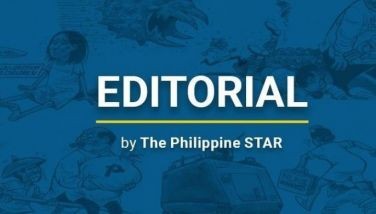Book notes

I devote this week’s column to a listing of notable books. Although some of these titles may not be new, any book you have not yet read is always new.
I can’t quantify it, but there seems to be a lot of books being published these days, books on the humanities, even big coffee-table volumes, but less and less literature. This is understandable – fiction does not sell. I have also come across beautifully produced books that, alas, only serve as a reminder that you can’t judge a book by its cover.
Honor: The Legacy of Jose Abad Santos By Desiree Ann Cue Benipayo?Philippine World War II Memorial Foundation
The Japanese Occupation tested my generation and the generation that followed. The national trauma that was the Occupation raised several questions about our national character, some of them unresolved to this very day – the ambivalent nature of collaboration and the real definition of nationalism.
Some Filipinos collaborated gladly with the Japanese, perceiving them as the nation that freed us from colonialism. At the same time, there were collaborators who sincerely believed that collaborating with the Japanese would lessen their depredation and their brutality.
There were also those, of course, who fought the Japanese, giving up their lives in their opposition. These are the real heroes of that war,?not those who collected dubious medals and proclaimed their patriotism.
Of this distinguished group, Jose Abad Santos rises above all of them. He had a choice to collaborate and flourish, but he refused for which reason the Japanese killed him. He was Chief Justice of the Supreme Court when Quezon fled to Australia, then to the United States, entrusting the Philippine government to him.
History tells us that paragons like Abad Santos are often forgotten. This well-crafted biography is an effort to stave off our amnesia.
Occupation 1942-1945 By Benito J. Legarda Jr. Vibal Group
This patrician memoir of the Japanese Occupation illustrates the Shakespearean observation that the “rich also bleed.” This is also excellent social commentary. A young man when the Japanese invaded the Philippines, Benito Legarda’s sharp memory is refurbished by his father’s diary and recollections of upper-class relatives. Highly recommended.
Debunked By Rigoberto D. Tiglao The Manila Times
This collection of essays is an excellent read because this veteran journalist has several axes to grind. While all of us may have axes to grind, few can be as articulate as Rigoberto Tiglao.
He reveals many unknown details of major scandals that stigmatized major politicians. Highly recommended, but read with caution.
The Counterfeit Revolution: How Ferdinand Marcos Became Dictator of the Philippines By Reuben R. Canoy
Reuben Canoy, the writer and politician, has first-hand knowledge of the Marcos regime because he was Undersecretary of Information, Presidential Action Officer, and Chairman of the Southern Philippines Development Authority.
As a writer in the early days of the Martial Law regime, Canoy was privy to the machinations and backdoor dealings in the Palace. His book is not only authoritative but also illustrates how power operates and how it also fails.
He called the Marcos dictatorship a counterfeit revolution because like most intellectuals in the fringes of power he realized soon enough the shortcomings of a presidency surrounded by relatives and cronies who profited from that dictatorship.
He has a few words for the President today and I hope President Duterte will read this book so he will know what to avoid.
Dark Days of Authoritarianism By Melba Padilla Maggay Langham Publishing
This is a collection of essays on the Martial Law regime by five individuals who were involved in the activist movement.
The essays reveal so many aspects of that regime that are not known. The editor, Melba Maggay, is also a polished playwright and fictionist. Highly recommended.
Press Freedom Under Siege: Reportage that Challenged the Marcos Dictatorship Edited by Ma. Ceres P. Doyo
A compilation of the journalistic record of the Martial Law regime that stands out as an example of courageous reporting. A portion of the book describes the murky and perilous conditions today that the journalist must carefully navigate.
Never Again! (To Martial Law) By Crispin C. Maslog
Although this volume is quite thin, it includes some of the most interesting and least-known aspects of the Marcos regime. Here is the couple on their travels and their lavish shopping expeditions, and at their parties. Read it and marvel at how the Marcoses plundered the country.
More Islamic Than We Admit: Insights into Philippine Cultural History Edited by Isaac Donoso Vibal Group
This anthology of essays about the Muslim heritage of Filipinos is first-class scholarship and commentary. The author, who is Spanish, recounts the origins of Islam in the Philippines as well as its impact on Spain. A must read, especially for those who shape national policy regarding the Moros.
Rock Solid: How the Philippines Won Its Maritime Case Against China By Marites Danguilan Vitug Ateneo Press
Herein is a well-researched and lucid study of our case with China and China’s incursion on our territory. It records the heroic effort of Supreme Court Senior Associate Justice Antonio Carpio in his very perceptive defense of the Philippine claim before the International Court. According to the Chinese, their claim on the Spratly Islands is historical. Justice Carpio debunks this with historical documents. Highly recommended.
The South China Sea Arbitration: Understanding the Awards and Debating with China By Alfredo C. Robles Jr. DLSU Press
This is a very important addition to the growing number of publications on how we can deal with China and how we can further our interest. This book explains further the least understood aspects of that arbitration.
Demigods and Monsters: Stories by Caroline S. Hau UP Press
This second collection of fiction by the cultural historian, Caroline S. Hau, is a good mix of obscure writing and lucid and readable prose. An earlier anthology on the Filipino elite as described by Filipino writers is superbly edited, with a very perceptive introduction by Hau. It is good sociology as well as literary criticism.
- Latest
- Trending






















